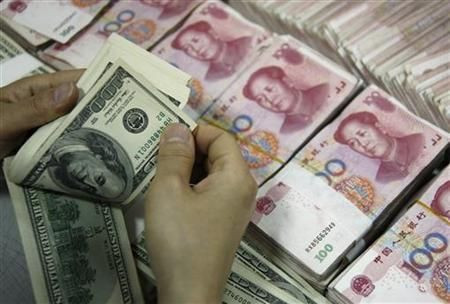Why Fitch Ratings Cut China’s Credit Rating: Total Debt May Be 198% Of GDP; Foreign Exchange Reserves Climb To $3.4 Trillion

Fitch Ratings has cut one of its most important ratings on Chinese government debt as concerns that the nation's huge indebtedness, which is burgeoning, in part because of a big influx of foreign currencies, could threaten the stability of the world's second-largest economy.
The London-based agency, which has held a negative outlook on China's local currency debt since April 2011, said Thursday it lowered its rating on China's long-term, local currency sovereign credit rating to A+, its fifth highest rating.
"Credit has grown significantly faster than GDP since 2009," Fitch said in a statement. "China experienced the second-fastest expansion of credit in real terms, behind only Qatar, between end-2009 and end-June 2012.
"Fitch believes total credit in the economy including various forms of 'shadow banking' activity may have reached 198 percent of GDP at end-2012."
Shadow banking refers to non-bank financial intermediaries that provide many of the services offered by commercial banks. However, these intermediaries are subject to very little regulation and are deemed to be far less stable than commercial banks.
One reason for the huge increase in credit is the influx of foreign currencies. Beijing said this week that foreign currency reserves had climbed to $3.44 trillion by the end of March.
“The rise in foreign exchange reserves is a very clear sign that capital inflows are back,” Shen Jianguang, an economist with Mizuho Securities, told the Financial Times. “We will see more and more worries about this in the coming months because of the massive money printing in the U.S. and Japan.”
© Copyright IBTimes 2024. All rights reserved.






















